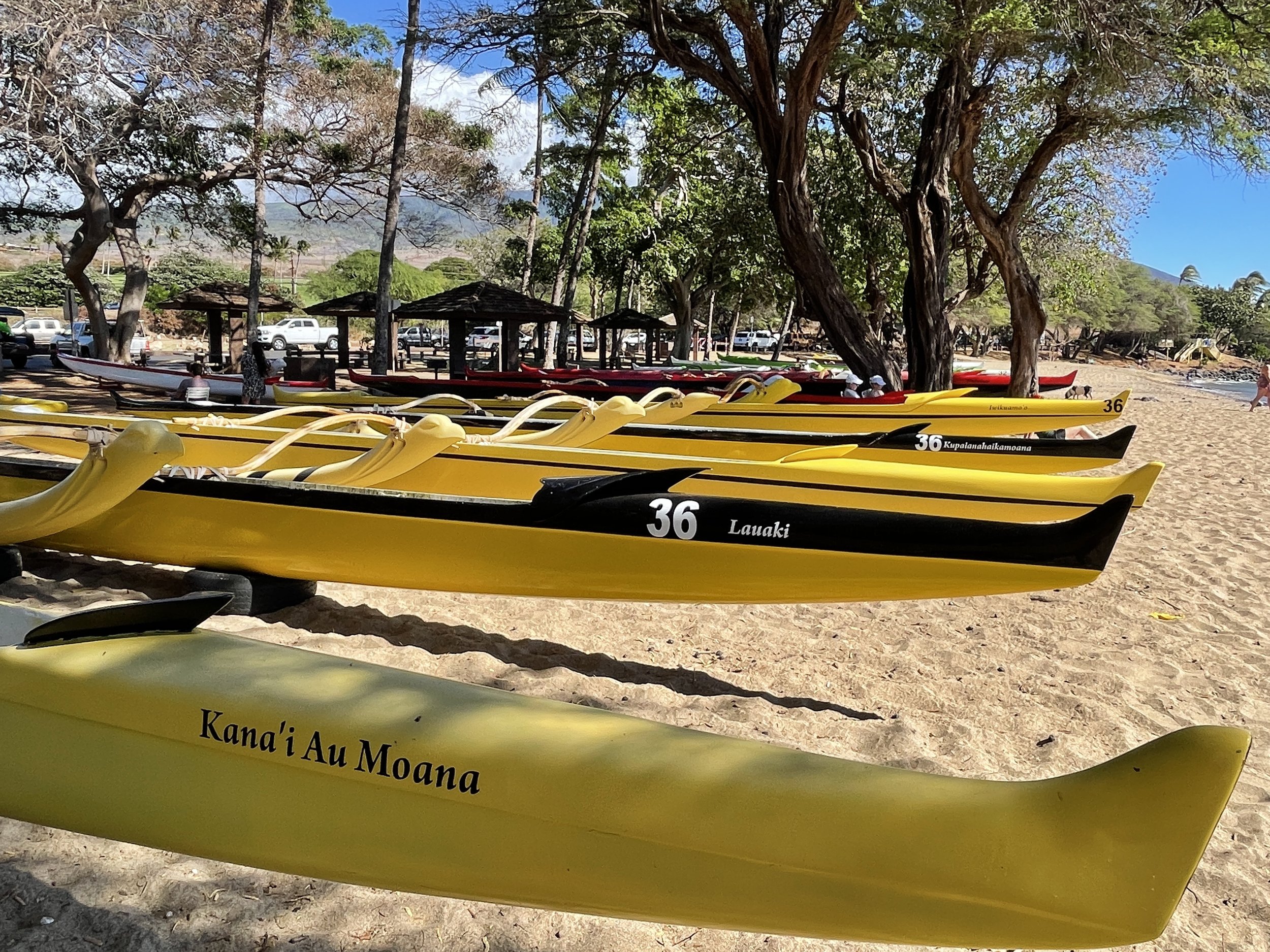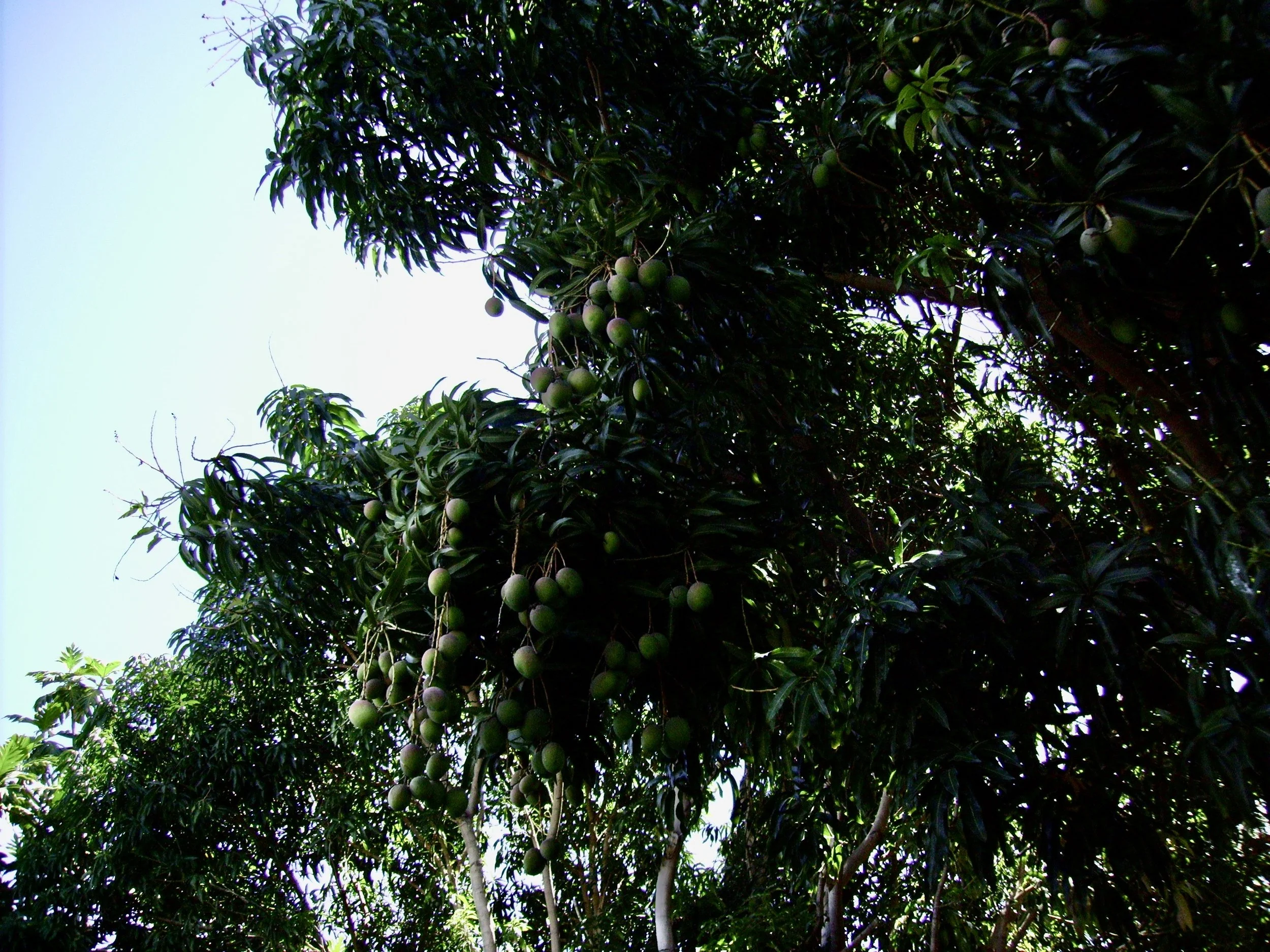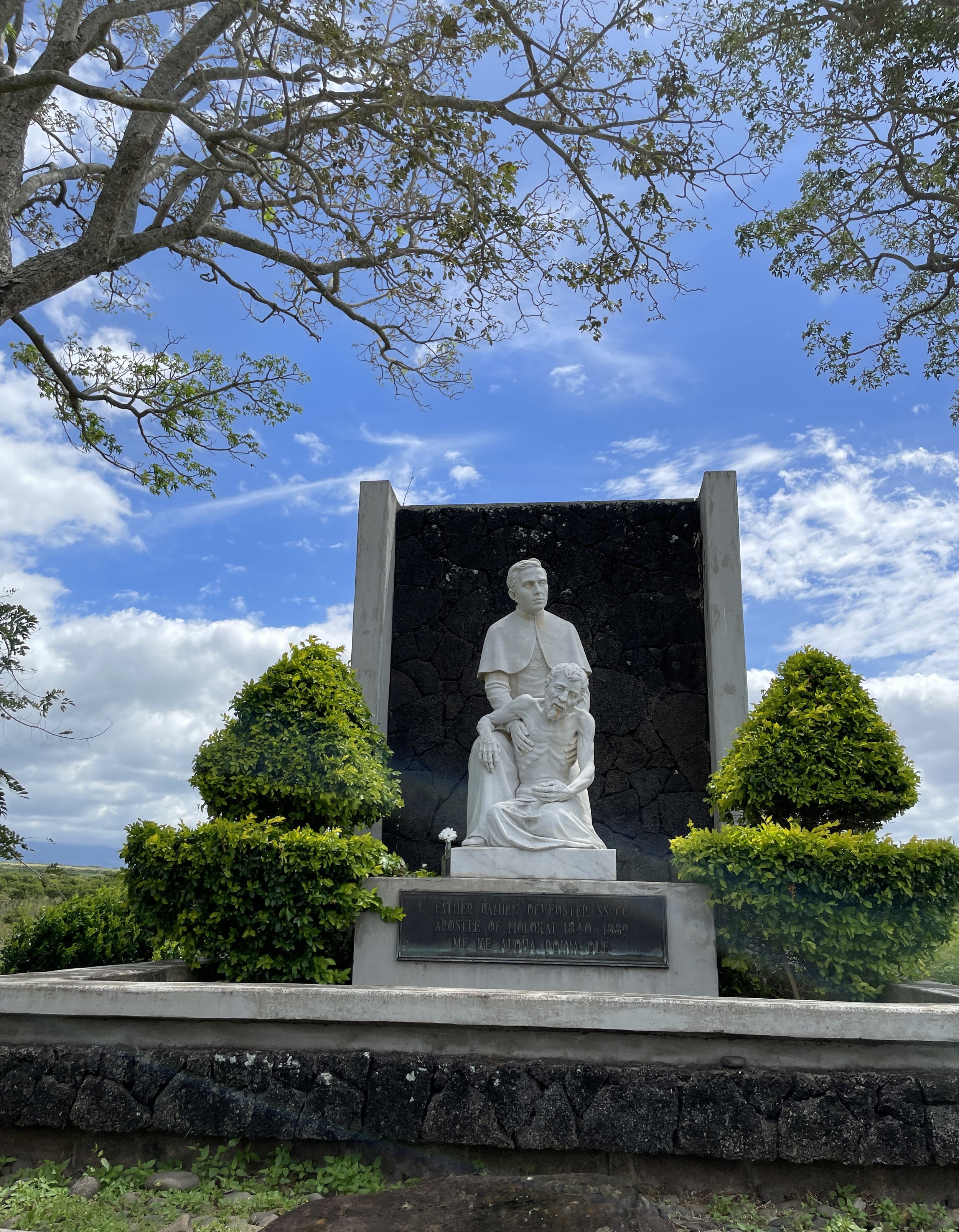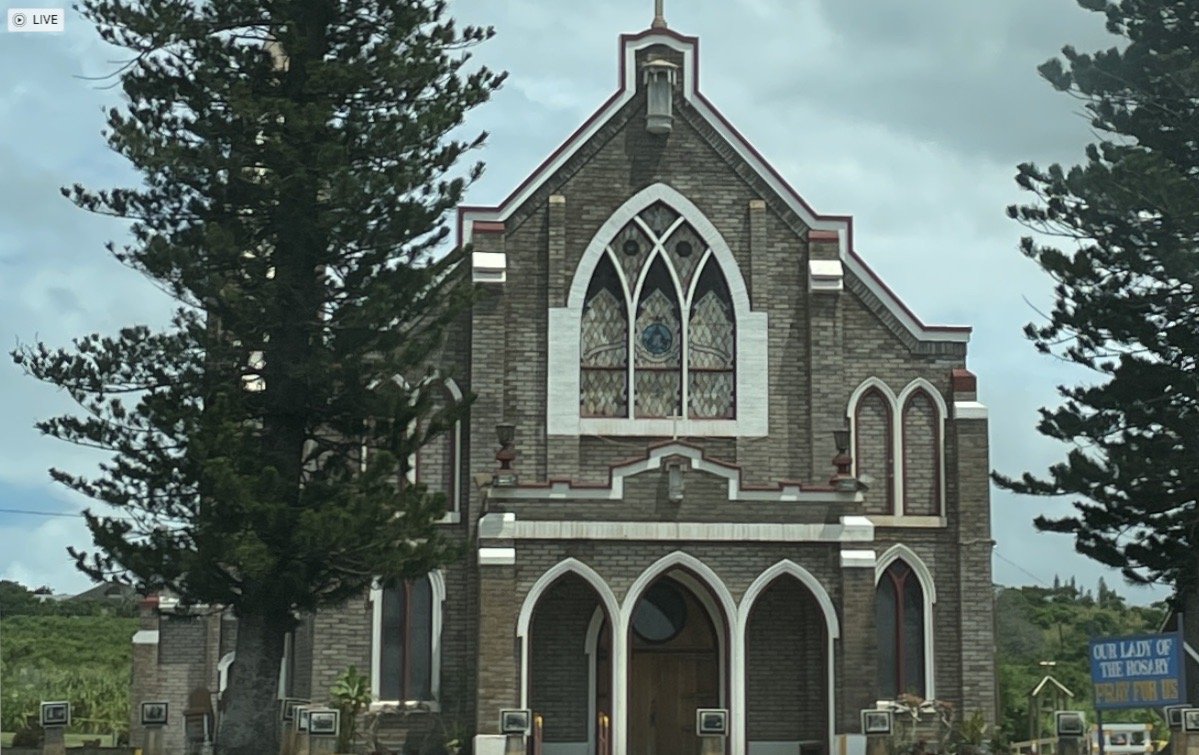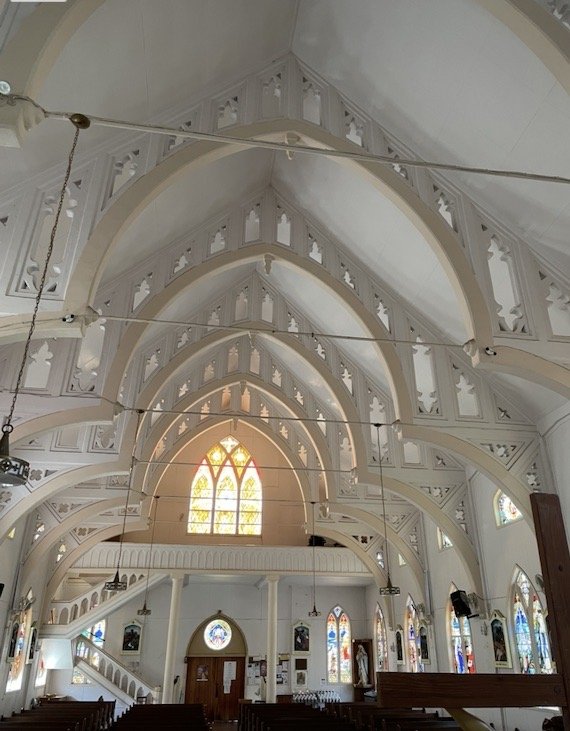Excerpts ~ Lahaina Town, My Heart-My Home
Chapter 19
In knee-deep water, daydreaming about someday, I saw a school of… fish? Something was in the shadows—or was it the shadows? As it came closer, I saw white spots on the tips of dozens of black wings churning up the water. Suddenly, spotted rays were circling my knees. They swam in a group, going out thirty or so feet, only to circle back in again. Round and round, in and out, they went. I stood, mesmerized, for several minutes.I am not leaving until they do. I’ll never be this lucky again.
“Hihimanu,” a voice behind me said.
“Pardon?” I asked, turning to see a thin, weathered, old man behind me on the sand.
“Das da name fo' da spotted ray. Hihimanu. It mean el-e-gant-bird.”
“Ooh—thank you for telling me. They’re—magnificent,” I said struggling to find a word worthy to describe them.
“It mean dat too.”
“What?”
“It mean ‘mag-ni-fi-cent’ too,” he said, laughing. “Dey stay smaht—git da beegest brain of any fish. Dees ones keiki.” (Children).
He took a few slow, quiet, steps into the water to stand beside me.
“I’m so glad I came today,” I said. “How often do they come this close?’
“I been hangin on dis beach fo' ahmos' fifty yea', an I nevah see dis befo. Hawaiian legend say da first person dat see dem git choke good luck.”
“No kidding. Really?”
He smiled mischievously, “Naaaw.”
Breaking into laughter, he nudged me, throwing me off balance, almost sending me sideways into the drink. Regaining my footing, I scrunched my nose at him and said, “You one buggah!”
“Oh, I jus like play one litto joke, sistah. Wat yo name?”
“Penny, and I could use some good luck—or maybe just a real Hawaiian legend about good luck. Anything.”
“You not da good luck penny den?” He said, laughing. “My name Cuddy, I stay at dat Canoe Hale (ha-lay) mos days,” he said pointing to a collection of small beach huts on stilts. “Come sit sometime an I tell you all kine Hawaiian legends.”
Chapter 30
Lying awake that night, I wondered if there was such a thing as a battery-powered fan and questioned why my trees had mangos in October. Isn’t there a growing and a not-growing season?
By morning, it had become one of those things I had to know, so that afternoon, I asked the question of a group of normal and marginally-normal friends (some were in transition one way or the other) under the Tree about it.
“You should be happy you even have mangos,” they said, chastising me. “Especially Hayden mangos—the biggest and best!”
“But I don’t even like mangos,” I defended myself. “They taste like peaches marinated in paint thinner, and they are all over my yard, all slimy, and buggy, and smelly.”
Before I finished the sentence, they collectively inhaled. Jaws dropped, and shock blanketed every face. They looked at each other. Did she really just say that?
I could have sworn the temperature dropped by ten degrees, as if each of them were a molecule in an imaginary mood ring capable of sending out a chilly blast of air toward mango haters. One would think I’d just said I hate babies or puppies or … the flag. I’d probably be drummed out of both factions of the Friends of the Tree Society. I might even lose my (admittedly premature) local status. Obviously, it’s a hanging offense to say you hate mangos in Hawai'i. I looked up at the Tree and pictured hundreds of mango haters swinging from its branches.
“I’m sorry,” I said, reaching for absolution. “If you like ’em so much, come and get ’em.
Apparently, I’d redeemed myself. They relaxed and returned to vertical rather than leaning in at me with body language that screamed, “How dare you?! It’s not pono to hate mangos!”
Suddenly, I heard, “Really?” and “When?” and “Mahalo Penny,” all spoken with the greatest sincerity. Smiles returned, but I noticed they were quickly followed by squinty, sideways, pirate-like glances of questionable and dubious intent. They had turned into a mob of mango claim jumpers. Some paired up, leaning shoulder to shoulder, and in twisted whispers conspired about how they could get there first and clean me out before anyone else.
I would live to regret my generosity-without-parameters approach to getting rid of mangos, and I didn’t get an answer to my question about mango-growing season for years to come.
Chapter 63
On the cliffs above Ho'okipa Beach Park on the north shore, I sat transfixed by the giant waves. The sun shone through them, enhancing every shade of blue, and green, and sunshine imaginable in brilliant, mesmerizing, color. Surfers were being towed out by jet skis to ride the big ones that were running at forty to fifty on the faces. It is my personal belief that one does not ride waves that big so much as one falls down them, remaining vertical. Most made it to shallower water while everyone waited, holding their breath, for others to emerge from the deep blue after what seemed like an eternity in Neptune’s washing machine.
Hunger finally pulled me away for a fish taco in the little hippie plantation town of Paia, before I turned onto Baldwin Avenue and headed upcountry. Stopping at an old church with a garden off to one side and a statue as its centerpiece, I walked down a path to gaze in awe at a life-sized figure of Father Damien with a leper (victim of Hansen’s disease) sitting on the earth in front of him. A visit to Kalaupapa, on the island of Mōloka'i, was on my list of places to see. One of our local stations often featured interviews with the kupuna, who, although cured of the disfiguring disease, preferred to stay. Most knew no other way of life and were fearful of the stares and ignorant stigma still surrounding lepers. Their tales of life in the colony were filled with melancholy for the close-knit community where they’d spent their lives. It was a community in the truest sense—one of shared loss and shared gratitude, a place of a common affliction and collective responsibility in caring for each other. I stood in the stillness, hearing nothing but the birds and the breeze rustling in the trees, and reflected on how blessed I was. Building or not building, a B&B is an insignificant thing.
I left the garden to enter the church through massive wooden doors. The stained-glass windows were beautiful from the outside, but from the inside, they were magnificent. Just as it had in the waves, the sun shone through, intensifying the already brilliant hues and creating beams of ethereal-colored light that crisscrossed the sanctuary, making me feel as if I was passing through a rainbow walking down the aisle.
Wishing I hadn’t used all my film on the waves, I climbed a squeaky stairway to a balcony overlooking the sanctuary below. Standing alone, admiring the old wooden pews below and the massive wooden arches supporting the roof above, I took a moment to talk to God, because I figured if He could choose to be anywhere at that moment, it would be there. I asked forgiveness for anything and everything I may have ever done to hurt anyone and ended my prayer by asking Him to help me be a better person—and maybe to curse less—and for a little help to get a B&B built.
Winding along narrow roads past bucolic green meadows, painted eucalyptus trees, and ancient lava rock walls, I listened to slack-key music and enjoyed the cooler temperatures and quiet, verdant beauty of upcountry. Expansive panoramas, each more amazing than the last, appeared around every curve. There are places on the slopes of Haleakala where one can see the entire island as if looking down from heaven. At first sight, it can bring a tear and take one’s breath away, but while it was still the most beautiful place I had ever seen in my very limited travels, I no longer saw it through unsullied visitor’s eyes. Mine were dirtied by time and reality. They were local eyes, eyes not so overwhelmed with the beauty that they could ignore the junk cars parked in the weeds, the appliances dumped on the beaches, or the plastic bags blown up with gases of decaying rubbish like a fetid aneurism about to burst. I saw the incompetence and corruption and would learn why Hawai'i was repeatedly voted one of the worst states in the nation in which to start a small business. All these issues must have been here before. Had I been blind to them or assumed them to be unusual instead of commonplace—or maybe I wanted to protect the memory of a perfect honeymoon?
